|
by Glenn C. Koenig, Webmaster at Town Wide Mall
Temperatures are high enough to cause significant health problems, especially for anyone without adequate cooling indoors. Regional radio and TV news programs have been carrying stories about cooling centers in major cities, but Maynard is one of many small towns too numerous for them to cover. For example, Boston has declared a heat emergency and has opened numerous cooling centers, as well as splash fountains and swimming pools. Cities like Boston can end up with a "heat island" effect, where extensive expanses of asphalt pavement and roof materials soak up heat from the sun, creating even higher temperatures, so these facilities are essential. Here in Maynard, we have a lot more open space with trees and other plant life, which can help absorb sunlight and slightly reduce the heat build up. However, being a much smaller town, we only have a few options for cooling off. Still, when it's this hot, it's important to be cautious, no matter where you live. I checked Maynard's town web site and found an announcement regarding the heat wave here: https://www.townofmaynard-ma.gov/CivicAlerts.aspx?AID=227 On that page, three cooling centers are listed, although when I contacted both the Police and Fire departments, I could only confirm that the Fire Department actually has one available.
The Fire Department has a web page with extensive information about not only their cooling center, but other tips for surviving in the heat: https://maynardfd.com/2024/06/18/maynard-police-and-fire-departments-share-tips-for-staying-cool-amid-heat-advisory/ On their site, it says that temperatures, such as we're now experiencing, "...can be extremely hazardous and at times fatal." This may be common knowledge by now, but what seems to catch many people off guard is how the effects can develop slowly, while we aren't noticing, then become severe suddenly. Because of this, it's very important to reduce exposure in the first place. Although the 911 emergency phone system was offline for a few hours earlier in the week, the problems have now been fixed, so if someone appears to be struggling, get them to a cooler place right away, and call 911 for help. Comment
During a heat wave such as this, where even temperatures and humidity at night are too high for most people to sleep comfortably, just using window fans is not recommended. However, there are many times during the summer when the air outside at night is even cooler than it is in an air conditioned room. In that case, using a fan can save electricity and provide fresh air for better sleep, as well.
I have been meaning to record a video on how to make one of these, but somehow, something else yet again interrupts me, and I have to put it off. Since we had a heat pump installed after I made this video, we don't use window units in our house anymore, so I need a volunteer who still uses one, to show how it's done. Ideally, the location would be a bedroom, in someone's home, where there is another window for cross ventilation. My plan would be to record the video on how to make one, do the actual work in my shop, install it, then leave it in place for the homeowner to use afterward. Conclusion There are many efforts to convert to sustainable energy sources for society as a whole. Some of them are very big and impressive, such as giant battery systems, pumping water up into lakes to flow down through hydro dams when needed, and so forth.
As impressive as they may be, conservation is often the forgotten factor. There are no big headlines, no photos of impressive technology, and so forth. Conservation is often based on the efforts of millions of people, taking the initiative to change habits and adopt new ways of living that can make a big difference. With energy as plentiful and low cost as it has been over the previous decades, our culture adapted to what was available. However, now that we realize what the impact of our energy use is, we must take the responsibility to adjust. Although conservation may seem to involve sacrifice, the truth is, many ways to save energy and lighten our impact on the planet do not require extraordinary measures. Often, simple change in habits or adjusting our lifestyles in minor ways can help a lot. The Window Bar is just one idea of something simple that can be done, yet save a significant amount of energy. There are many more. I have a few articles on my web site https://energystories.org but they are only a few of what's available.
0 Comments
by Glenn C. Koenig, webmaster at Town Wide Mall Although this may seem far fetched at first, this is exactly what 200 cities and towns in Massachusetts have already done, starting as far back as 2012. That’s well over half of the total of 351 municipalities in the Commonwealth. Those that have already created such plans are listed on the state's web site: https://www.mass.gov/info-details/municipal-aggregation Maynard is now in the process of creating such a plan, known as “Maynard Power Choice.” The town has a dedicated web page with more details here: https://www.townofmaynard-ma.gov/511/Maynard-Power-Choice Maynard’s Select Board will host a presentation about the plan on Tuesday, June 4th at 7:00 PM. Residents can attend the meeting in person at town hall (195 Main Street), or online by copying and pasting the link provided in the agenda. Following the meeting, there will be a public comment period, extending from June 4th through July 8th. The notice for the meeting and the agenda is here: https://www.townofmaynard-ma.gov/AgendaCenter/ViewFile/Agenda/_06042024-1147 (Maynard Power Choice is listed under item #9) This process is known officially as "Community Choice Aggregation" or “Municipal Aggregation.” • Aggregation means that a town can gather thousands of households into a single group, giving it bargaining power, in order to obtain electricity at a “bulk rate,” or a quantity discount, on behalf of electric customers in town who have joined the program. The result can be a better deal when compared to an individual homeowner choosing an alternative electric supplier on their own instead. Local governments are free to create these plans under the existing state Department of Public Utilities program mentioned on the web site linked above. • Choice means that, under the program, participation for individual households is voluntary. That is, residents in a given town are free to choose to join in or say “no thank you” (opt out). Those who opt out remain with the same standard electric supplier they now have (see item #3 in the “Overview” section on the state's web page). Most Municipal Aggregation programs typically provide different “tiers” of electric rates, depending on the percentage of renewable sources providing the electricity. For example, those willing to pay a slightly higher rate can obtain “100% renewable” power, eliminating their dependence on fossil fuels altogether. Other tiers may provide a mix of renewable sources and others, such as fossil fuels, or nuclear.
Recently, I contacted the Massachusetts Department of Public Utilities while researching this story. Alanna Kelly, official spokesperson for the DPU, provided the following statement on behalf of the department: "Municipal aggregation is an important tool for communities to utilize clean energy while providing flexibility to ratepayers. The DPU continues to work through pending applications to ensure provision of electric service for aggregated customers is compliant and consistent with its focus to protect all ratepayers." Background • There is an article on Wikipedia that gives more details on how this all works, and what's being done in other states: https://en.wikipedia.org/wiki/Community_Choice_Aggregation The electric power system faces an inherent conflict: On the one hand, it exists in a free market economy, where competition is supposed to help control prices and quality. On the other hand, having multiple competing companies each install their own utility poles and string wires along our streets proved to be quite impractical, early in the last century. With only one set of wires leading to our homes, competition is out of the question, so we were stuck with a monopoly, initially. Over decades, the federal government, along with state governments, enacted laws to regulate the industry. Unfortunately, this approach suffered from a variety of problems. Government regulation, as well as industry infrastructure, is typically slow to change, whereas market conditions can fluctuate rapidly. The “oil crisis” of the early 1970s is a prime example. Fuel prices rose rapidly, squeezing utility companies, who fought for permission to raise rates substantially. Customers were stuck on the sidelines; regardless of the result of the struggle between the companies and the government agencies, customers were left paying the bills each month. In the 1990s, a new approach was developed. The electric companies were made to “break up” into two parts: generation (supply) and distribution (delivery). • Delivery: The existing company would handle distribution - as monopoly, yes, but as a regulated utility (the government controls the rates). That’s Eversource, here in Maynard. They install and maintain the poles and wires, but this infrastructure changes slowly and predictably, so regulation is relatively practical. • Supply: Customers could now choose who generated the electricity at the other end. At first this seemed impossible; How could one choose a supplier without another set of wires to deliver the electricity? The answer is based on where the money you pay goes. The portion of what you pay on the bill, designated as “supply,” is ultimately paid to the company that you chose to generate the electricity you use. That supply company is connected to the same electric grid as all the others, which is how the electricity they generate reaches you, even though the electricity is "mixed in" with the electricity added to the grid by all the other suppliers. For example, if you choose electricity generated by wind, then your money goes to the owners of the wind turbines. Eversource is required to send the supply portion of what you pay to the wind farm owners. That means less money goes to the companies using fossil fuels, which, in turn, means that they need to burn less fossil fuel, or operate fewer fossil fuel generating plants. The reality is a bit more complicated. Fossil fuel generating plants can’t just be shut down or started back up quickly. Nor can they be demolished and later replaced by new ones without an extraordinary lead time, spanning many years. Wind and solar generation depend on the availability of wind and sunlight, which varies throughout the day. Of course, new ways are being developed to store energy when the wind is strong or the sun is bright, and send that energy back out to the grid during other times. Some of that technology (to store energy) is already in place, but we have a ways to go before more of that is implemented. Research is ongoing to find more commonly available materials with which to build better batteries, for example. Meanwhile, we are in a transition period where we still have a variety of energy sources. To give generating companies a bit more income stability, contracts are often set up for a period of a few years. The other problem has been with the variety of supply companies to choose from, all with different multi-page contracts so sign. Buried in the fine print there have often been guarantees for stable prices, but only for six months or so, after which the price can vary widely. These companies add these provisions because nobody can predict the cost of generating in the future, base on fuel prices, or how many wind or solar panels go online, etc. However, there were so many companies, operating in various states, that trying to manage them became an regulatory nightmare over the last decade or so. Finally, we got to a point where the market was almost completely dominated by companies attempting to cheat customers. This recent press release by the Commonwealth of Massachusetts provides some details: https://tinyurl.com/TWMLink08 There is another report on this situation from WBUR radio, just this past March: https://www.wbur.org/news/2024/03/28/massachusetts-third-party-energy-competitive-suppliers-electricity-regulators The issue boils down to this: Individual electric customers don’t have the resources for a legal team to evaluate contracts and compel companies to provide a fair deal. But towns are big enough and have enough resources that, together with state oversight, can execute fair contracts and keep prices reasonable. And, in turn, towns can give customers a real choice, including better access to electricity generated with renewable resources. Comment Having direct experience with community choice aggregation when I lived in Arlington, I wholeheartedly support Maynard's efforts to implement a plan here. When I first moved to Maynard, back in 2019, one of the first things I did was to visit town hall to inquire about creating a similar program in Maynard. I'm glad to see that we're finally on the way. Although there are pros and cons to renewable energy sources (aka "Green" energy) right now, I fully support moving forward with plans to transition away from fossil fuels as soon as we can. This is an effort that will take years of work, and yet is urgent at the same time. Although there is currently political turmoil regarding energy sources, I don't see much use in pointing the finger of blame, back and forth.
That infrastructure also includes we, the customers, who benefit from using it's products, from the cars we drive, to the heating systems in our homes, as well as the generating plants that produce our electric power. At the same time, we must do what we can to reduce our reliance on fossil fuels as quickly and efficiently as possible. As far as I am concerned, the evidence is clear - we are endangering all life on our planet, including our own. Yes, we will have to help all those employees in the fossil fuel industry find new jobs elsewhere. We will have to do our best to retire the old infrastructure and replace it with something new. This will not happen all at once - some jobs will end when employees retire; some infrastructure will reach the end of its operational life over time. In my opinion, we will have to do what we can to help each other make the transition away from fossil use and toward renewable sources, as we go forward. But I have complete confidence that we can do this if we stay on task. Town Wide Mall is primarily supported by your donations. Please consider contributing by clicking the Donate button.
by Glenn C. Koenig, webmaster at Town Wide Mall
The two terms in the title of the article may need some explanation: Overlay District: I published a story on this web site, back in November 2023 on the “Powder Mill Road Corridor Initiative” which explains what an “Overlay District” is. Here is the link: https://www.townwidemall.com/news/plans-in-progress Near the end of that story, I included a section called “Some Definitions and Comment” to provide a brief understanding of Zoning Laws, and what an Overlay Zone or Overlay District is.
(Note: To see other stories published previously, choose "News Index" from the menu above.) MBTA Communities: It may seem odd that Maynard voters are being asked to vote on a zoning law regarding the MBTA. After all, Maynard does not have any MBTA service within its borders. However, Maynard is included under this law because we are defined as an “MBTA served community.” That means, although the T doesn't pass directly through our town, we abut (share a border with) the Town of Acton, which is served by South Acton Station, less than a mile away.
As to "Why" the law was passed, the state makes its case on its web page devoted to the reasoning: https://www.mass.gov/info-details/multi-family-zoning-requirement-for-mbta-communities To summarize, we here in Massachusetts are facing at least two serious issues: Very expensive housing, due in part to a shortage of available housing units, and a seriously inadequate transportation system, due partly to our history of development dating back to before the United States was founded! (see the "Background" section, below, for more details.) For "How," the law was developed, it was included in a section of a 101 page bill passed by the legislature in 2020 and signed into law by then Governor Charlie Baker in early 2021. One description of the process (sausage being made, so to speak) is described in this news report from WGBH: https://www.wgbh.org/news/politics/2024-02-22/a-surprising-history-of-how-a-bill-became-the-mbta-communities-law For "What," ... the quick answer is that each town listed must have at least one zone which permits multi-family housing, as specified by details in the law, "by right." That means a developer may build multi-family housing within such a zone without a special hearing to get permission by local town government. The state web site has a question and answer page devoted to the details on how this all is supposed to work: https://www.mass.gov/info-details/mbta-communities-law-qa However, although the language on that web page seems quite clear, it doesn't mention much of anything about the controversy surrounding it. In a sense, what it gives is the "state's opinion," but back in mid February, voters in the Town of Milton rejected a zoning plan that was originally designed to comply with the law. The story about what happened in Milton was covered by WGBH news as well as many other news organizations. (Note: the photo at the top of this story on their web page is the same as the photo at the top of the story referenced above, under "How," so please don't think this is the wrong link). https://www.wgbh.org/news/local/2024-02-15/milton-voters-reject-new-housing-plan-violating-the-mbta-communities-act Since the vote in Milton, there have been a series of follow up news stories on the controversy. For instance, the state Attorney General subsequently sued the town of Milton in court, the state cut off certain state financial aid to Milton, and attorneys representing Milton subsequently responded by filing motions in court to contest the suit. By now, the state's supreme court is scheduled to hear arguments on the case this fall, as reported by WBUR back in March: https://www.wbur.org/news/2024/03/19/massachusetts-housing-lawsuit-andrea-campbell
Article 28 has two parts. The first part establishes a new type of zone, the Overlay District, by adding a new section, 9.7, to our zoning by-law. The second part, starting on the bottom of page 38 in the warrant, designates the parcel of land at 111 Powder Mill Road to be included in this new zone. Commentary The issue of housing has been controversial in Massachusetts for decades. Residents of existing towns are understandably concerned about possible changes and impact to the character of their towns. They are often concerned about overall density (and the impact on town infrastructure, such as water, sewer, roads, schools, and other town services), as well as having to accommodate new buildings that may seem out of place. Some people are of the opinion that housing that's "affordable" will end up with people who don't fit into their idea of good neighbors. On the other hand, the shortage of housing is already having an impact on all of us, but it's largely invisible, when compared to something like the appearance of a new building. That is, the lack of housing drives up the cost of living, for both house purchasers and renters. People who might live and work in our state may defer because they conclude that they won't be able to make ends meet. People who already live here may reach their "breaking point" financially, and decide to leave Massachusetts to live elsewhere where the economics are more favorable. Even though more jobs can now be performed online, many service industry and other jobs require traveling to the workplace in person. Couple this with sad state of our transportation infrastructure (see notes in the "Background" section, below), and the problem gets worse. Anyone wishing to move to lower-cost housing, at a greater distance from their place of work, faces an arduous commute, whether by car or public transit. The law requires Maynard to add 474 units of housing, 10% of what we already have (4,741 as of 2020) on a land area of at least 21 acres. Since we don't have any MBTA stations in town, the location of this new housing can be anywhere in town. We are fortunate to have a parcel of land well suited to comply with these requirements, without having to directly impact our existing neighborhoods or downtown area. If the existing building can be converted to residential use (apartments or condominiums), we are likely to have less disruption from construction traffic than we otherwise might if a new building had to be built from scratch. However, it's very important to note that vote proposed in Article 28 only changes our zoning by-law; it does not specify when or how these additional units will be constructed or occupied. Since it may be some time before anything is actually built, Maynard has time to assess the impact of additional families and individuals on our existing infrastructure, including water, wastewater treatment, energy sources, and transportation. The intention of the law is to place people as close to public transit as possible, in hopes that we can reduce the amount of automobile traffic on our roads and highways. When I asked Bill if water was our most limiting factor, he expressed the opinion that transportation may also be significant. Therefore, it may make sense for us to consider some kind of local shuttle bus or other method for the future, perhaps supported by state funding, to help people get around without having to add more cars to our roads and the surrounding highways. Such a conveyance could make stops at the South Action Station, as well as downtown Maynard, area food stores, and various residential locations. I want to note that the Overlay District is not just for compliance with this law. By passing this by-law, we stand to improve Maynard in a number of other ways in the future, including not just for our own transportation, shopping, and recreation, but also to provide better support for wildlife along the Assabet River, among other things. In light of all this, I recommend approving Article 28. Unfortunately, I will be on a trip out of town so I will not be able attend the meeting myself in order to speak on the article or cast my vote. Background Housing: Because development in Eastern Massachusetts extends back over 300 years ago, we are now stuck with the results of decisions made long ago when no one could conceive of today's housing technology or requirements. Part of this legacy is the dominance of single family housing zones in many of the communities surrounding Boston. The legacy of single family housing originates in our largely agricultural economy, prior to the industrial revolution in the 1700s. There seemed to be plenty of land, so people spread out and set up farms and housekeeping as they saw fit. Now we have gone through the manufacturing era, which has since ebbed away as global trade has provided us with goods manufactured elsewhere in the world. This change has caused most old factories in Massachusetts to close or be redeveloped for new uses during the last century. Maynard's own mill complex is just one example. Unfortunately, we're stuck with many of the decisions made long ago as to the placement of individual properties, roads and highways, and rail lines. That brings us to transportation.
For example: Our four rapid transit lines each have their own technology: transit cars from one line cannot be run on any of the other lines. The green line is the descendant of that first subway, which is why it runs with overhead lines to power it, (as trolley cars have done, since electrification) instead of a third rail. The green line also has such sharp curves that its cars must be "articulated" (have a flexible joint in the middle) just to get around the sharp curves built for smaller trolley cars, especially at Boylston Station at the corner of the Boston Common. Our rapid transit lines and commuter rail lines were all designed primarily with commuters in mind. That is, many people who live in the outskirts of Boston (in the suburbs that were built after World War I and World War II) commute to work in the inner city. This "spoke and hub" arrangement is great for that need, but as manufacturing, warehouses, and offices moved out of the inner city, the need to travel from one suburb to another is poorly served by the system. For example, if you live in Maynard but have a job in Framingham, you'll likely use a car to drive there. The idea that you would ride the T all the way into Boston, then back out to Framingham is absurd for any but the most extremely patient traveler. Consider also the fact that North Station and South Station serve completely separate commuter rail networks, without any rail connection between them. This is a burden for anyone who wants to travel up the east coast from the south and continue on to New Hampshire or Maine, or anyone locally who lives south of Boston but must work north of the city. After all, you can't just "change trains" in Boston, you actually have to take a taxi or Uber or two different subway routes, the red and the green or orange lines, to get there, each with its own wait time for the next train. Private Transportation: Our pattern of roads (for travel by truck, automobile, or bicycle) are famously derived from cow paths centuries ago. Attempts to remedy this by building new highways in the 1950s, 1960s, and 1970s ended up with resistance from people who did not want their densely settled or historic neighborhoods to be demolished and their communities sliced into pieces by major thoroughfares. At one time, Route 3 was planned to run right down through Lexington and Arlington to join Route 2 in Arlington Heights (where Route 2 widens to 4 lanes). Those towns fought the plan and won, so Route 3, as a divided highway, ends at Rt. 128, with ramps to join Rt. 128, near the Burlington Mall. The infamous "inner belt" (I-695) was planned as an expressway to form a tight circle through Boston's closest neighboring cities and towns to connect with I-93 and then go around through Somerville, Cambridge, Brookline and towns south of there. This plan, if ever implemented, would have wiped out numerous neighborhoods that had existed there for hundreds of years. There is a retrospect on this web page from Bloomberg News: https://www.bloomberg.com/news/articles/2012-05-01/boston-s-highway-that-went-nowhere-lessons-from-the-inner-belt-fight-40-years-later
Route I-95 was originally planned to run from Rhode Island directly into the heart of downtown Boston and then continue directly up through Chelsea and Saugus (along the current Route 1), then further up into New Hampshire and Maine. However, plans to build it along that route were abandoned in the early 1970s after resistance from the numerous neighborhoods that would have been destroyed. Now, only the Orange Line, Amtrak, and commuter rail lines run in the corridor south of the city. These take up a much narrower strip of land when compared to a multi-lane limited access highway. After years of delay, the government finally decided to designate much of Route 128 as also Route 95, routing it around the city instead. These are just a few examples of the transportation challenges in the greater Boston area that have been recognized for a long time by now, but have remained unsolved due to a whole host of problems for which no suitable solution was found.
by Glenn C. Koenig, webmaster at Town Wide Mall
The warrants are mailed out this way because Maynard no longer has a weekly newspaper, the Beacon- Villager, which was the traditional publication in which it was included. The Beacon-Villager ceased publishing on paper in May 2022. The Action Unlimited is the only weekly publication routinely mailed out to every household at this point in time. If you did not receive a copy of The Action Unlimited, or your copy was missing the Warrant, a copy can be obtained at Maynard Town Hall or on the town's web site: https://www.townofmaynard-ma.gov/DocumentCenter/View/2867/warrant-5724?bidId= For anyone signed up to vote by mail, you should have already received your ballot For those planning to vote in person, a sample of the ballot is also available on the town web site: https://www.townofmaynard-ma.gov/DocumentCenter/View/2853/sample-ballot?bidId= The reason for two separate Warrants has to do with the unusual nature of the town election this year. Every ten years, the town is required to review its Charter, as required by state law. The Charter is sort of like the town’s constitution, an overall guide to the functioning of government in town. A special committee is set up to review the Charter and make changes and amendments in order to keep it consistent with various changes in state and federal laws and policies, as well as changes in the surrounding culture that may have evolved during that time. Once the committee has finished its initial work, it has to report to Town Meeting for approval (which it did last year), then report to the voters, who must give final approval of the changes (at this upcoming election). That report and the entire text of the revised Charter is provided to voters before the election in the Warrant booklet. Therefore the election is not only to elect officers (Select Board, School Committee, Library Trustees, and Town Moderator), but also to vote either “yes” or “no” to the changes to the Charter. The warrant booklet includes four pages to detail when and where the election will take place, what will be on the ballot, then ten pages for the report from the Charter Review committee, followed by the entire revised charter itself (another 32 pages). If you want to review all this online, the report and the charter itself are located on a separate page of the town web site, devoted to the Charter Review Committee: https://www.townofmaynard-ma.gov/272/Charter-Review-Committee Note: For those new to Maynard, or new to town government in Massachusetts in general, you may want to read my four page guide, "Town Government Introduction." To access it, go to the Opinion page on this web site and scroll down to find the link to the document. It is a PDF file that you can download, read, and save for future reference. Commentary The Annual Town Election is likely to have a relatively low turnout this year, as all the candidates are running unopposed and the ballot question is not particularly controversial. Does this mean that democracy is in trouble? Perhaps. However, although there may be differences of opinion on various issues here in town, the lack of new candidates is likely due more to the time and effort it takes to participate on the boards and committees on which they will serve. Few people in town have the capacity and devotion to step up to these posts. Most of the rest of us are resigned to trust them to do well for the town in general, and take a balanced approach to the questions they will face and the decisions they must make. This is now how our government was intended to work, perhaps, but with the pace and complexity of life these days (compared to when our government structure and functions were originally set out), this is where we have ended up. In addition, the Town Charter (the only ballot question this time around) is not well known to most residents in town, not surprisingly. After all, the charter is intended to serve as a non partisan, non controversial framework within which the town functions. As with any similar constitution-type document, it is not intended to be changed very often or in any radical way. Still, I found it interesting to read portions of the Charter Review Committee’s report. It is clear to me that a great deal of thought and care has been given to the revision process by the members of the committee, and I appreciate the time and effort they have put in, in completing this work. In this case, the phrase “no news is good news” comes to my mind. After all, no one wants to have a struggle or boiling controversy when it comes to such an important document. Thankfully, I believe that voters can vote in confidence in favor of this ballot question. Please consider donating to help support the news in Maynard. Just click the button below to get started.
by Glenn C. Koenig, webmaster at Town Wide Mall
The purpose of the collection is to divert the toxic elements and compounds within the devices from the regular trash stream, where it would otherwise be incinerated and released into the atmosphere or become part of the incinerated “ash” that is later transported to landfills. Instead, the waste will be handled by operations specifically devoted to recycling the items, such as the electronic waste program at Staples, the office supply retailer.
The drive is part of a high school wide "March Madness" competition. Students in each grade are competing against students in the other three grades at the school. There are various other ways for students to earn points in the competition, in addition to the drive. Maynard residents, other than those connected with the school as mentioned above, cannot donate directly to the drive at the school, but are otherwise encouraged to donate any devices that are still in working condition to any of the various charities who take them for reuse. (For example, I searched the web for "donate working electronics" and came up with a reasonable list.) For devices that are no longer working, various retailers, such as Staples and others have programs to take them. In addition, Troop 130, here in Maynard, has a separate drive, twice annually, for deposit containers and electronic waste where residents of the town can drop off their e-waste items and donate money to benefit the Troop at the same time. Contact the troop for the latest information through their web site, https://maynardtroop130.weebly.com
About WAVM WAVM are the call letters for both the radio and TV stations at Maynard High School. The stations are operated by a team of students, under the supervision of John Ogden, television and radio broadcast teacher. They maintain a web site at https://wavm.org/ The radio station broadcasts on 91.7 FM; the TV station can be seen by cable TV customers on Verizon FiOS channel 28 or on Comcast Xfinity channel 8, but does not have an "over the air" broadcast capability. Live broadcasts can be streamed online at https://wavm.org/live/ Programs previously produced at the studio can be seen on YouTube at https://www.youtube.com/@WAVMproductions Staff at the station can be contacted by any of the means displayed on their Contact page: https://wavm.org/contact-us/ WAVM is Maynard’s only PEG (public/educational/government) access studio, which is housed entirely within the high school. Students working with the station provide video coverage of a variety of government meetings, as well as a series of news programs and other programming related to student, school, or town events and interests. Both the TV and radio stations broadcast live only at certain times during the week. Check the above web site for the latest schedule. Maynard High News (MHN) is one of many programs produced at the high school by students on a regular basis. The program features topics and creative works of interest to the student population at the school. Comment I applaud the students and staff at the high school for taking on this project. Although the effort might seem mundane at first, it is part of a major challenge facing our culture today.
With a population of 333 million people in the US right now, this adds up to many thousands of tons of electronic garbage that isn't going where it should go. I don't mean to blame anyone for this. After all, the problem is a cultural wide one. It exists because of our endless desire to invent, create, promote, and use the latest new technology. We live in a sea of messages that tell us that something new is better than what we have now, and therefore we should upgrade as soon as possible. What we should do with the one we already have is seldom mentioned. So, let's step back and look at the big picture. We mine ores from the ground, refine them into pure metals, then use them to make the components of our electronic products. We use the products until they malfunction or become obsolete. Then we "throw them away" and buy new ones. This leaves us with two major problems: • Mining has a significant impact on the land where the mines are located, and mining operations often exploit local people for labor, rendering them continuously in poverty, in poor health, and ending up with shortened lifespans. • Disposal also has a significant impact on us and the world around us. Where can we get rid of all these old electronics? Truck them to a landfill? Dump them into the ocean? Incinerate them and emit the toxic compounds that result into the air we breathe? What can we do to change this? We can learn from nature, which recycled everything before we humans and our clever industrial revolution showed up. That is, everything in nature is biodegradable. Minerals and nutrients make a full circle, from soil to plant to food for animals & humans, then back to the ground, into the soil, to start over. When everything was biodegradable, landfill made sense. Once in the ground, things would decompose and nature would take care of the rest. But manufactured products, made of metal and plastic can't decompose that way. Landfill just becomes a way to bury the problem and avoid dealing with it. If we follow nature's example, and complete the circle, then we avoid all the problems of mining and disposal. To complete the circle we have to do two things: • Design products to be easily disassembled so that the valuable metals and other elements within them can be removed, purified, and reused. • Send products we're done with to be separated into their component elements and compounds, which can then be used to manufacture new products, thus avoiding having to rely on mining to obtain more of them. And that's what these visionary high school students are doing. Teaching us all to complete the circle. No, it's not perfect. There's a long way to go for us all to live more compatibly with nature. But it has to start somewhere. Additional Resources For more on the impact of mining minerals used in today's electronic devices and electric cars, the WBUR program "On Point" produced a week long series of programs on the topic, entitled "Elements of Energy, Mining for a Green Future," March 11 through 15, 2024 https://www.wbur.org/onpoint/2024/03/07/elements-of-energy-mining-for-a-green-future Each of the five programs is available as a podcast, running approximately 45 minutes each. Both the pros and cons to mining are discussed. Please consider donating to help support the news in Maynard. Just click the button below to get started.
by Glenn C. Koenig, Webmaster at Town Wide Mall Maynard, MA - There are many ways to celebrate the Chinese lunar new year, which takes place on the first new moon in early February, even if your heritage isn’t Chinese. This year, seniors from both Maynard and Stow met together for the first time to celebrate by playing Mah Jongg. The game is akin to Gin Rummy, where players attempt to create certain combinations of tiles, each in their personal racks. When it's a player's turn, they can select at tile from the supply of tiles face down, or take the last tile discarded by a previous player. There are up to 144 tiles in a full set, although some variations of the game omit a few of them. When a player anywhere in the room completes the desired combinations of tiles, they say "Mah Jongg" out loud for the rest of the room to hear.
Council on Aging Director Amy Loveless told me that she hopes to host another meeting of the two groups in Maynard in the future. For details, she can be contacted via the Town of Maynard's web page for the Council on Aging:
https://www.townofmaynard-ma.gov/164/Council-on-Aging By Glenn C. Koenig, Webmaster at Town Wide Mall • Online registration deadline: 10 days before Election Day • Register by mail deadline: Must be postmarked 10 days before Election Day • In person registration deadline: 10 days before Election Day See the Commonwealth’s web site for more information on registration: https://www.sec.state.ma.us/ovr/?ref=voteusa_en Elections: See the Town of Maynard's web site for more information on elections: https://www.townofmaynard-ma.gov/170/Elections Election Year Dates 15 February - (This Thursday) Democratic Town Committee (see "Town Committee Details," below) 20 February - (Next Tuesday) Republican Town Committee (see "Town Committee Details," below) 5 March - Presidential Primary Election (for the political party of your choice): • Preference for President of the United States • State Committee Man & Woman • Town Committee members 16 March - Maynard Democratic Town Committee Caucus, to elect State Convention Delegates (see "Town Committee Details," below) (Note: The committee now changed the date; it was 9 March.) 15 July - Republican National Convention, Milwaukee, Wisconsin. 19 August - Democratic National Convention, Chicago, Illinois 3 September - State Primary (for Governor, Legislators, Senators, Governor’s Council, etc.) 5 November - Presidential Election (President if the United States, US Senator, Congressional Representative, State Representative, State Senator, along with other state and federal offices) Town Political Committee Details From the Maynard Republican Town Committee (their e-mail message as received): Our February meeting is rescheduled to next Tuesday, February 20, 7 PM, in the Maynard Public Library (77 Nason Street). We will be meeting in the Trustees' Room on the 1st floor. Please join us as we begin an exciting year with growing membership and renewed enthusiasm! MRTC meetings are held on the second Tuesday of the month, unless otherwise noted. The March meeting will be held on Tuesday, March 12. It's great to be in the company of fellow conservatives with a purpose, so please join us and bring a friend! We have enthusiasm, commitment, and a desire to make a positive difference. We look forward to seeing you in person on February 20th at 7 PM. From the Maynard Democratic Town Committee: (their e-mail press release as received): MAYNARD, MA TO ELECT DELEGATES TO DEMOCRATIC STATE CONVENTION Registered Democrats in Maynard will hold a caucus on March 16, 2024 to elect Delegates and Alternates to the 2024 Massachusetts Democratic State Convention. (Editor's Note: This is the new revised date. The event was originally scheduled for 9 March.) The caucus will be held March 16 at the Maynard Public Library, Roosevelt Room, 77 Nason Street, Maynard, Massachusetts from 11:00am to 12:30pm. Maynard can elect 8 Delegates and 4 Alternates to the Convention. The caucus is open to all registered and pre-registered Democrats in Maynard. Pre-registered Democrats who are 16 by February 24, 2024 will be allowed to participate and run as a Delegate or Alternate. We welcome any registered Maynard Democratic to run for one of the delegate seats. Same-day voter registration will be available at the caucus - paper registration forms will be available and those who are interested should come a few minutes early. Any person who is not shown on the Democratic Party list must either provide proof of Party registration or preregistration or must register before the end of the caucus registration period. Youth, minorities, people with disabilities, and LGBTQ+ individuals who are not elected as a Delegate or Alternate may apply to be an Add-on Delegate at the caucus or at www.sec.state.ma.us/VoterRegistrationSearch/MyVoterRegStatus.aspx The 2024 Massachusetts Democratic Party Convention will take place on Saturday, June 1 in the DCU Center Arena, Worcester, Massachusetts. This year is a nominating convention for the senate seat that Elizabeth Warren currently holds. Those interested in running to be a delegate or alternate or to get involved with the Maynard Democratic Town Committee should contact the Committee via email at [email protected]. Or check the Maynard Democratic Town Committee Facebook page. Also, the 2024 Democratic National Convention will be held in Chicago from August 19-22, 2024. And, please remember the Massachusetts Democratic Presidential Primary is March 5, 2024. Comment Note: As some state offices do not have a Republican running, the election for that office is often decided at the state primary on September 3rd. By the election in November, there is only one candidate, except for write-ins.
by Glenn C. Koenig, webmaster at Town Wide Mall
• post more news stories
• update the Community List and begin expanding it to include more information. • post a "year end report" to summarize what I've done and acknowledge donations from you, my readers, since starting this site, back in April of 2023. • do more fundraising for the Field Guide to Maynard, in order to complete the project and provide printed Field Guide maps to everyone in town who wants one. • establish an e-mail list (as some readers have requested) to be notified when I post a story, rather than having to check Facebook. The Community List has taken a serious effort, but I'm dedicated to maintain it accurately and keep it updated. To expand it, I need to determine what other information the members of each group want to include about their group and possibly about themselves as leaders or other office holders. I have already gathered addresses, e-mail addresses, phone numbers, and so forth for some organizations, but I want to make sure I don't publish anything without permission. In today's world we all must be very careful with access information as it can sometimes be used as an avenue for unwanted communication (such as junk e-mail messages or phone calls or worse). If you you are responsible for a group, I would really appreciate your help in this process. If possible, would you please take a few moments to review the list and let me know whether what I've published is accurate, and what additional information you'd like me to include in the list connected with your group. Please go to the Contact Us page on this web site to send me the information. Thank you. by Glenn C. Koenig, webmaster at Town Wide Mall Maynard, MA - I have just published the first draft of the Community List. This list is intended to include all groups, committees, and other organizations active in Maynard or specifically serving Maynard from other places.
This list is available for download as a PDF file on the Community List page on this web site. The Community List page includes a submission form so that individuals can contribute information to help me update the list. I want to thank David Mark, the staff at the Maynard Public Library Reference Desk, and many others too numerous to name here, for helping me gather the information needed to compile this list. As I have stated on the Community List page, this is a work in progress, and always will be, to some extent, as Maynard is an ever changing and dynamic community. by Glenn C. Koenig, webmaster at Town Wide Mall
The current facility has very poor access for those with mobility challenges, a lack of adequate space for its functions, a leaky roof, and other problems. The center has been at that location, 50 Brown Street, since 2015. (For more details, please see, "An Uphill Struggle," a story we published back on October 3rd: https://www.townwidemall.com/news/an-uphill-struggle ) On October 11th, at Maynard’s Special Town Meeting, voters approved the article that was submitted by the Senior Center Focus Group, but the vote was ruled to be "advisory only" because of errors in how the article was written. That meant that the money hoped for by the group could not be appropriated. Our report on the Special Town Meeting, on October 11th, has more details: https://www.townwidemall.com/news/historic-vote-brings-historic-attendance-at-meeting Although the funds desired were not available, the vote in favor served two purposes: It brought visibility to the situation for both the voters present and the public at large, and it encouraged those who wanted to establish the center by letting them know that the voters supported their effort, overall. At the meeting tonight, the Council on Aging was joined by members of Friends of Maynard Seniors, a stand alone fundraising and awareness group, members of the Senior Center Focus Group, an informal group of activists working to move the center to new quarters, as well as two members of the Select Board and a member of the Finance Committee. As a result, the Select Board is now set to move forward to establish a new town committee, called the "Senior Center Committee" to facilitate a collaboration of everyone interested in the effort. The Board could move on this as early as their next meeting, Tuesday, December 19th. At tonight's meeting, there was unanimous support for exploring both an interim as well as a long term plan. The interim concept is to lease currently available space in an existing building and move the center there as soon as possible. The long term plan is to take advantage of research soon to be conducted by a consulting group at UMass, Boston, ("The Center for Social and Demographic Research on Aging") which is set to survey the needs of the community and it's senior population, then recommend specifics to construct a fully functional Senior Center at a later date. There was also widespread support at the meeting to incorporate a Community Center in the long term plan, with the understanding that different community groups might benefit from holding activities there at different hours of the day and evening on a shared basis. Council on Aging Chair Mary Ann Shields expressed optimism that members of the new committee, once formed, would first get to know each other and their individual working styles and then start digging into the work at hand. The new committee is tentatively designed to include a few at-large members from the town's general population, as was proposed in item III. of the agenda for tonight's meeting: https://tinyurl.com/TWMLink06 As it is likely that the Select Board will vote on "the charge" to establish the new committee to include such at-large members, they invite anyone in the town who wishes to participate to contact them as soon as possible by sending an e-mail message, stating their desire, care of the Town Administrator: [email protected] Comment With somewhere around 3000 seniors in Maynard (depending on what age bracket you choose), it seems well past time to get going on a new center! For way too long, the current Senior Center has been stuck in seriously inadequate facilities, preventing many seniors for whom it was created, from taking advantage of the services they need. I urge anyone who wishes to join this committee, or just wishes to support this committee's work, to let the Select Board or Town Administrator know. You can also get in touch with the Council on Aging directly by visiting their web page: https://www.townofmaynard-ma.gov/164/Council-on-Aging It may not seem likely to some people, but residents of Maynard over the age of 60 or 65 represent a vital and important source of enthusiasm and support for community life and cohesiveness in Maynard, in general. In our rapidly changing and unpredictable world, the strength of our community is likely to be needed more and more in the next few years. After all, I'm included in this group (I'm 73 now) and I'm doing what I can to support community cohesiveness and spirit partly by publishing this news feed. Believe me, I'm just getting started. Town Wide Mall is free for anyone to read and carries no advertising, so our only means of support is donations from you, our readers. Please consider helping us with a donation of any amount. Click on the Donation button, below, to familiarize yourself with the options available.
|
AuthorWrite something about yourself. No need to be fancy, just an overview. Archives
June 2024
Categories |
||||||||||||||||||||||||||||||||||||||||||||||||||||||||













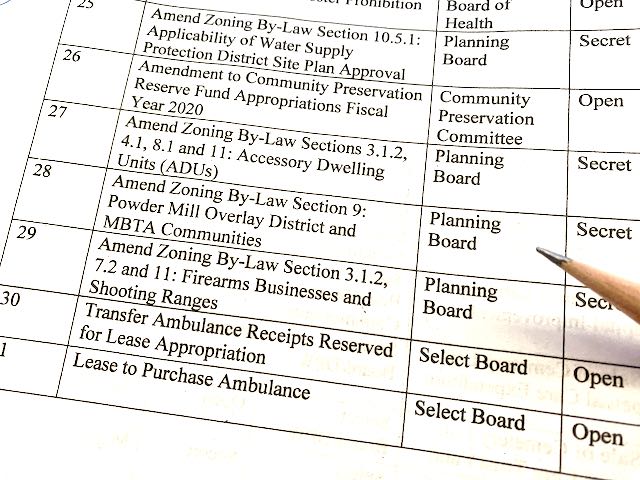
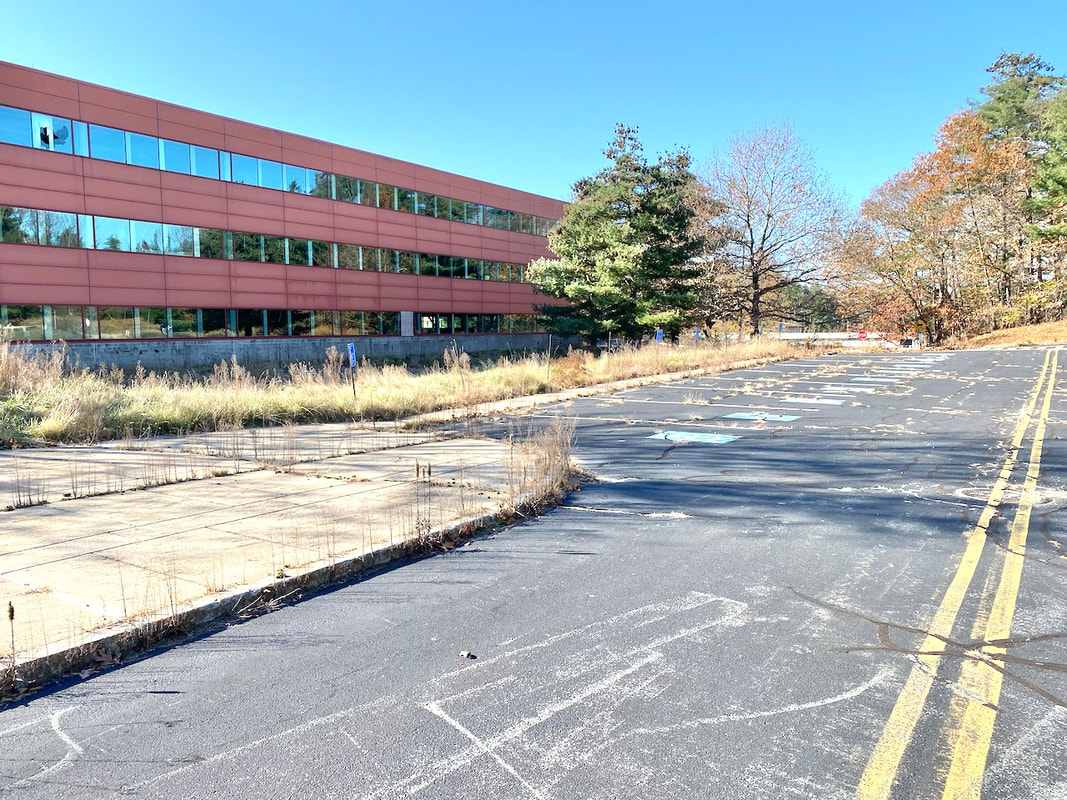
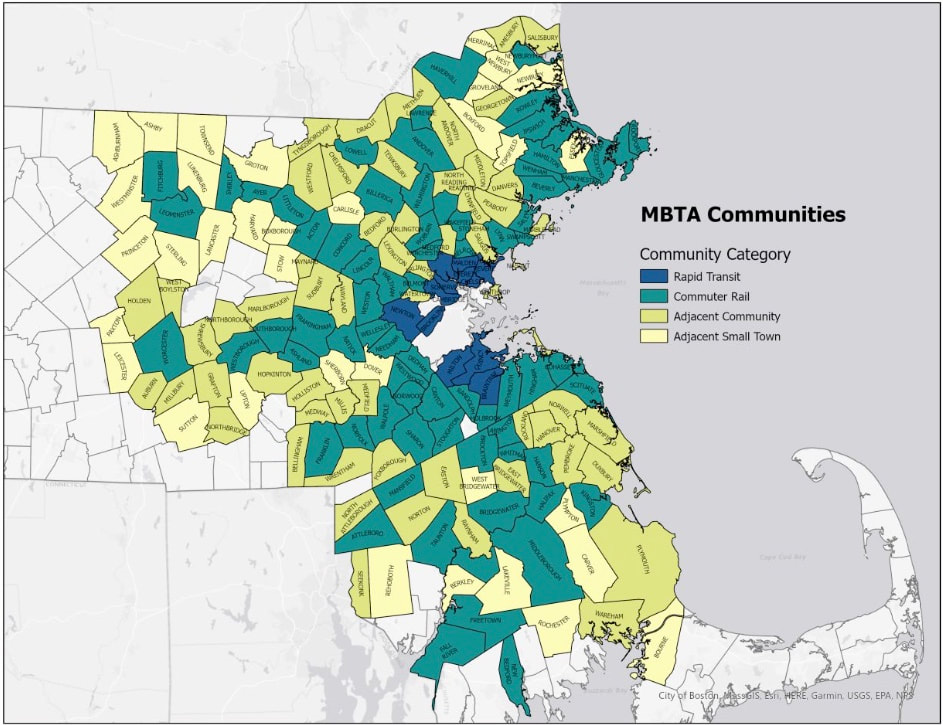
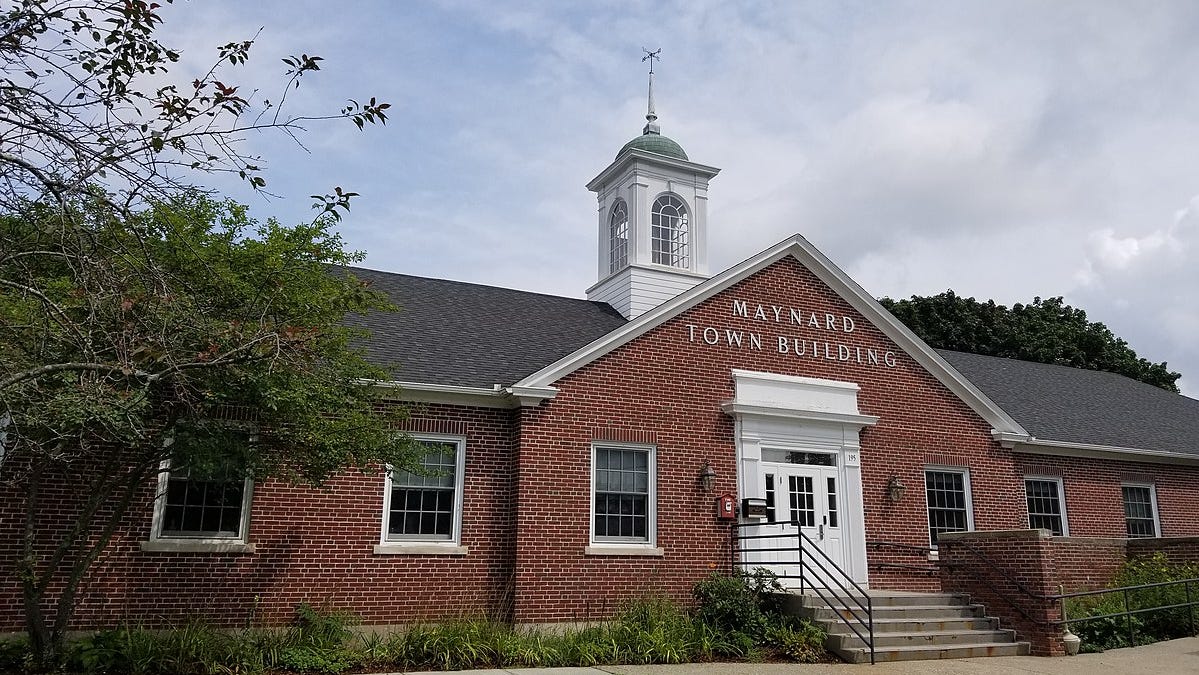
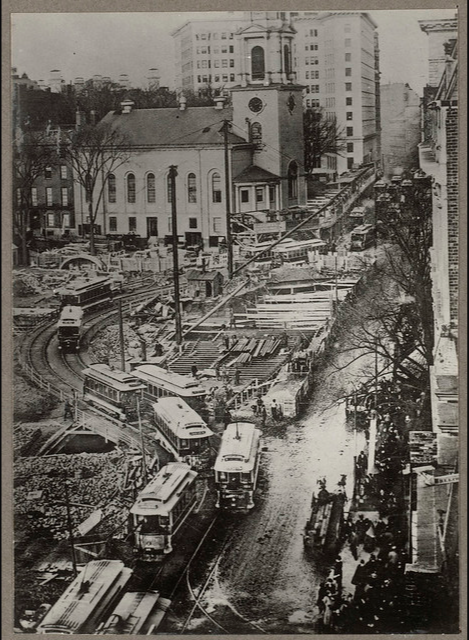
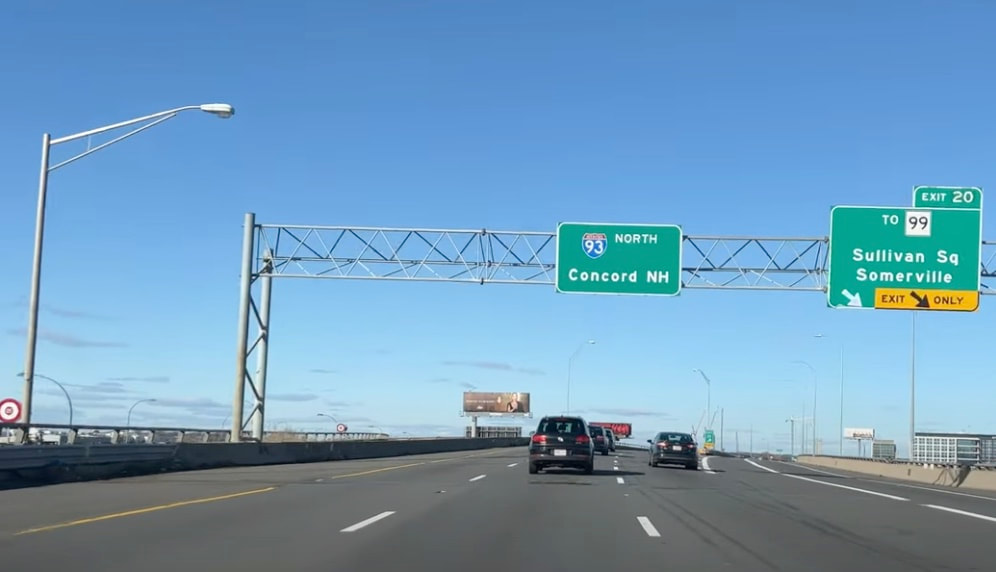
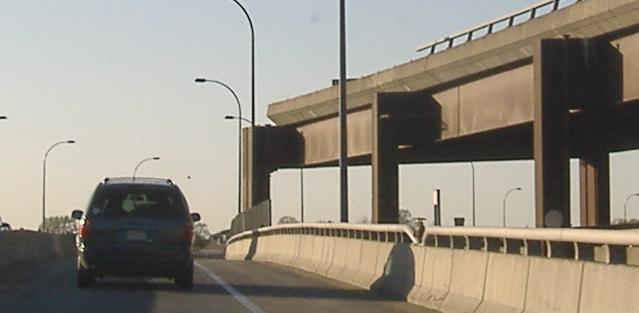
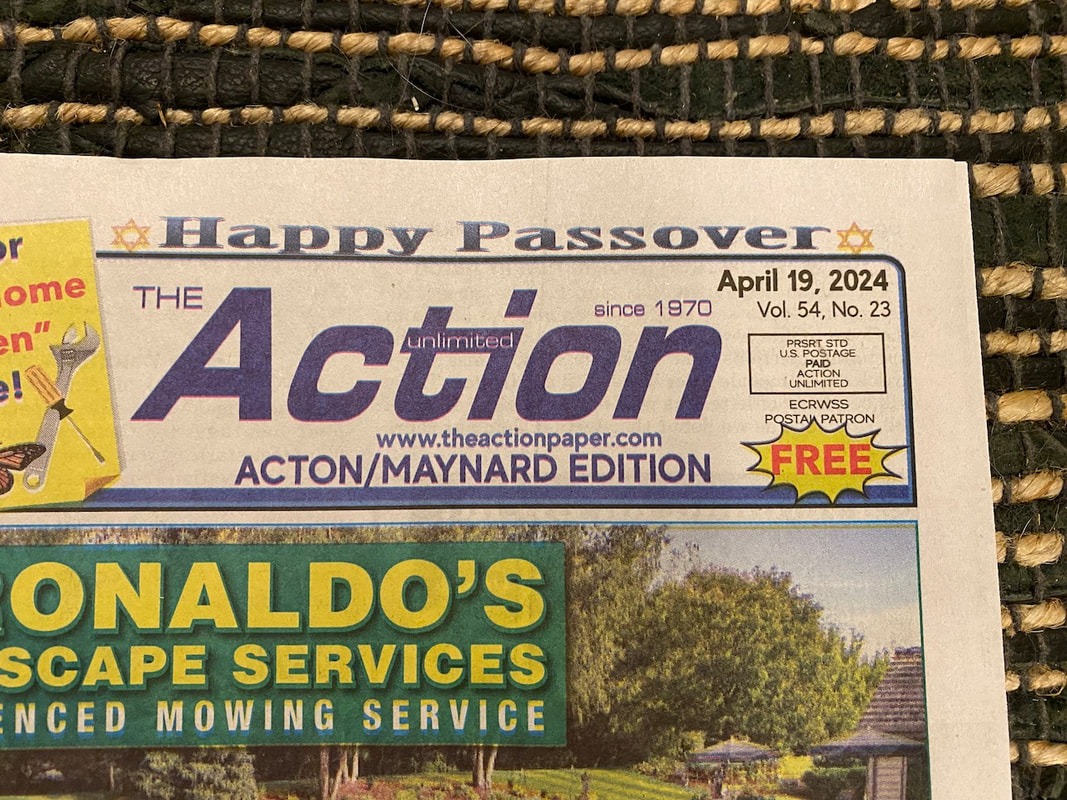
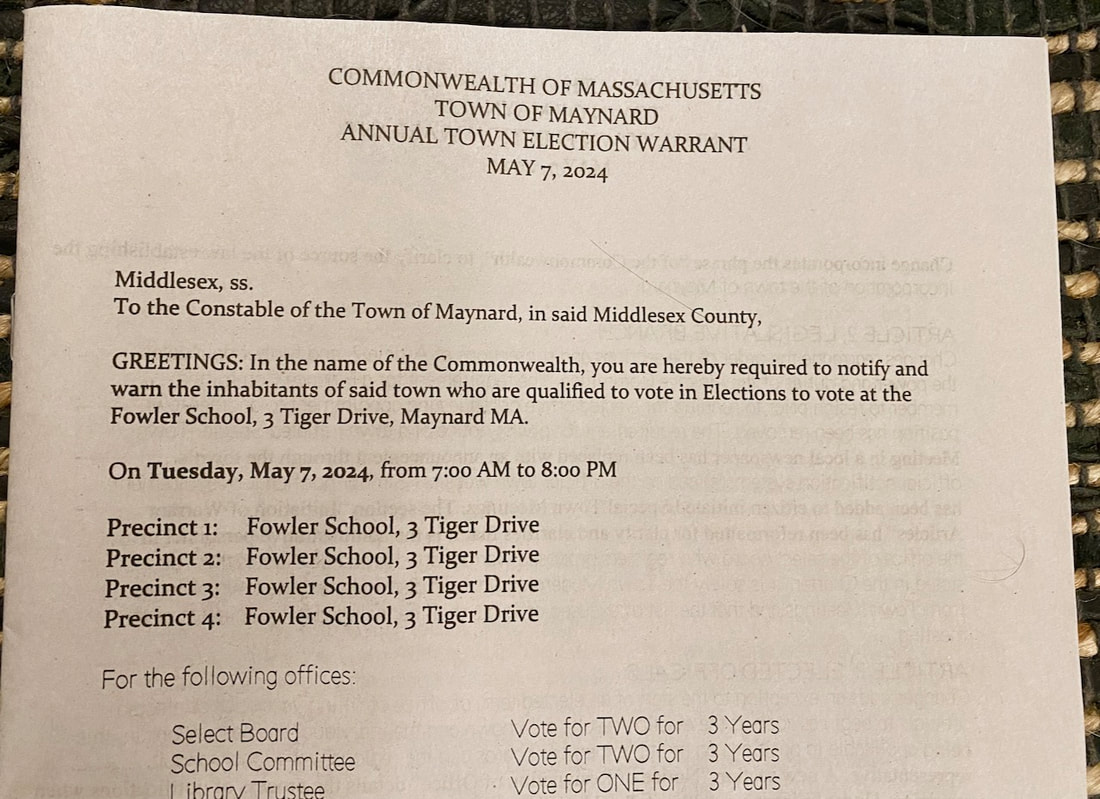




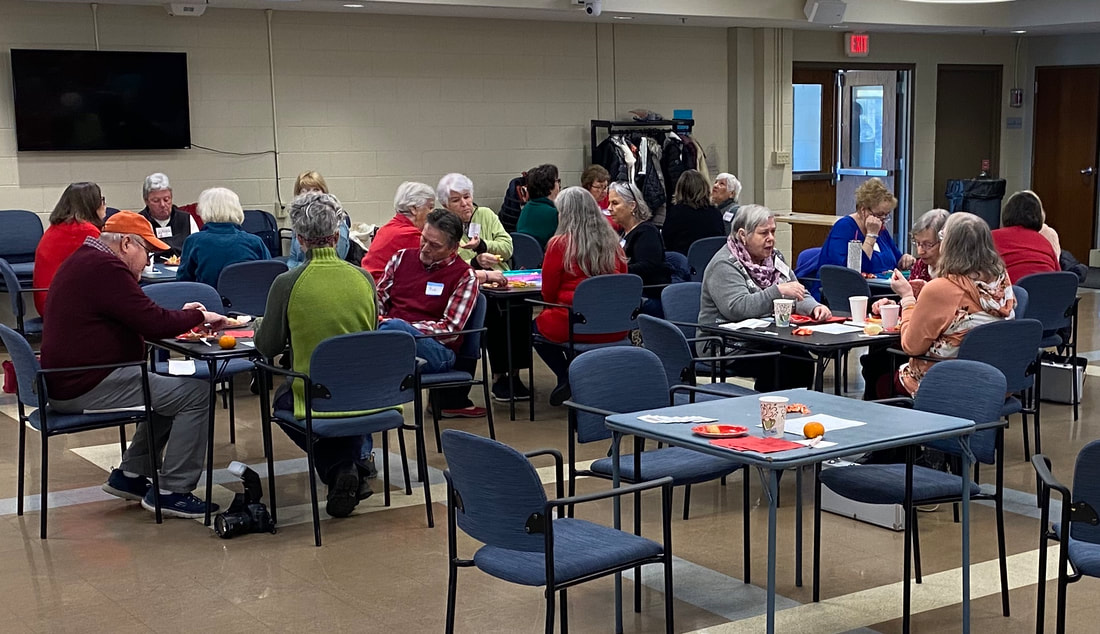
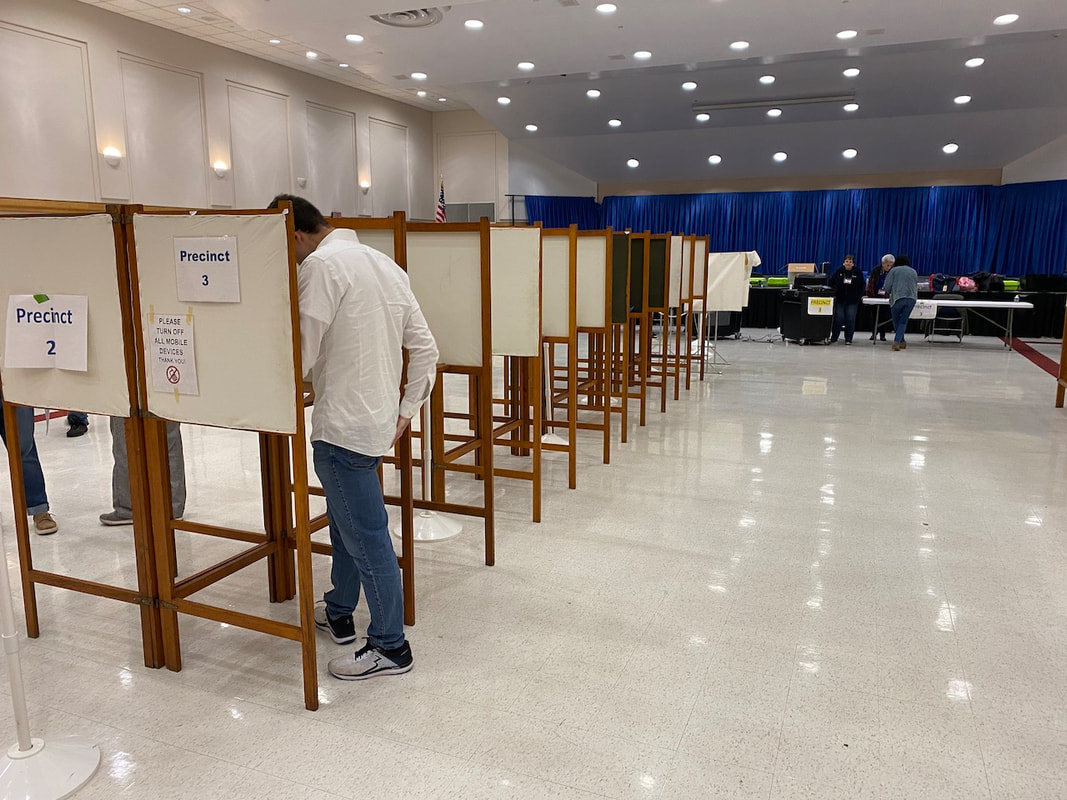
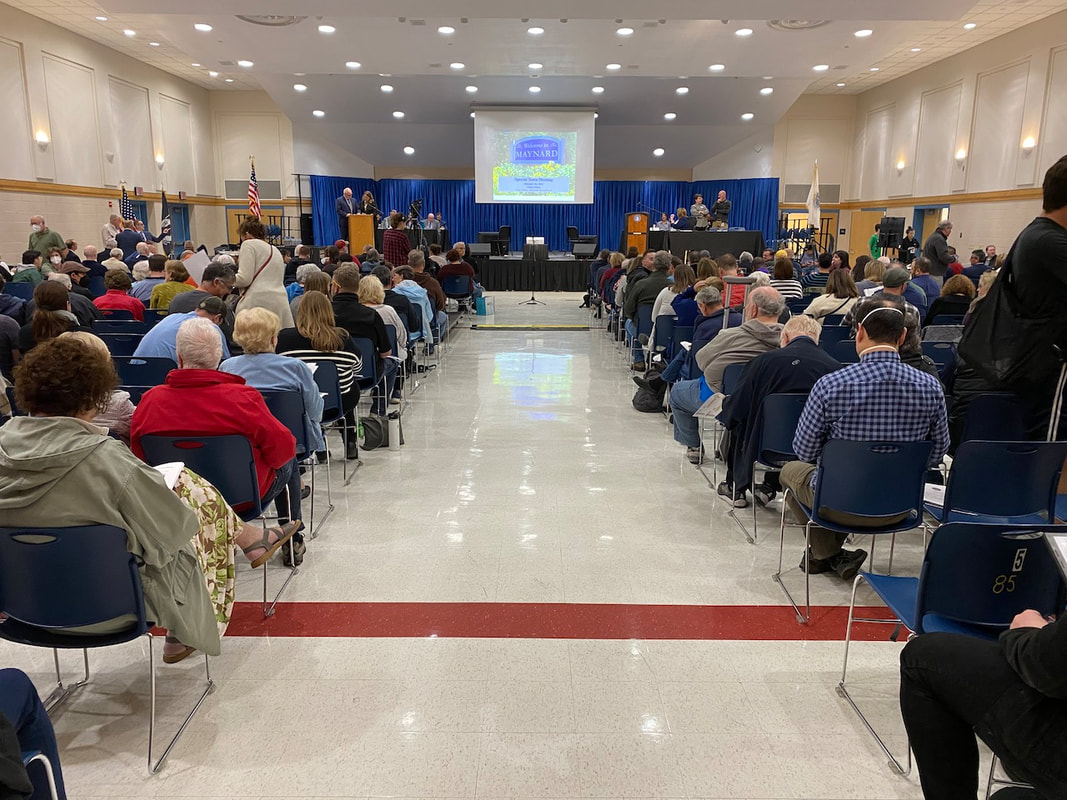
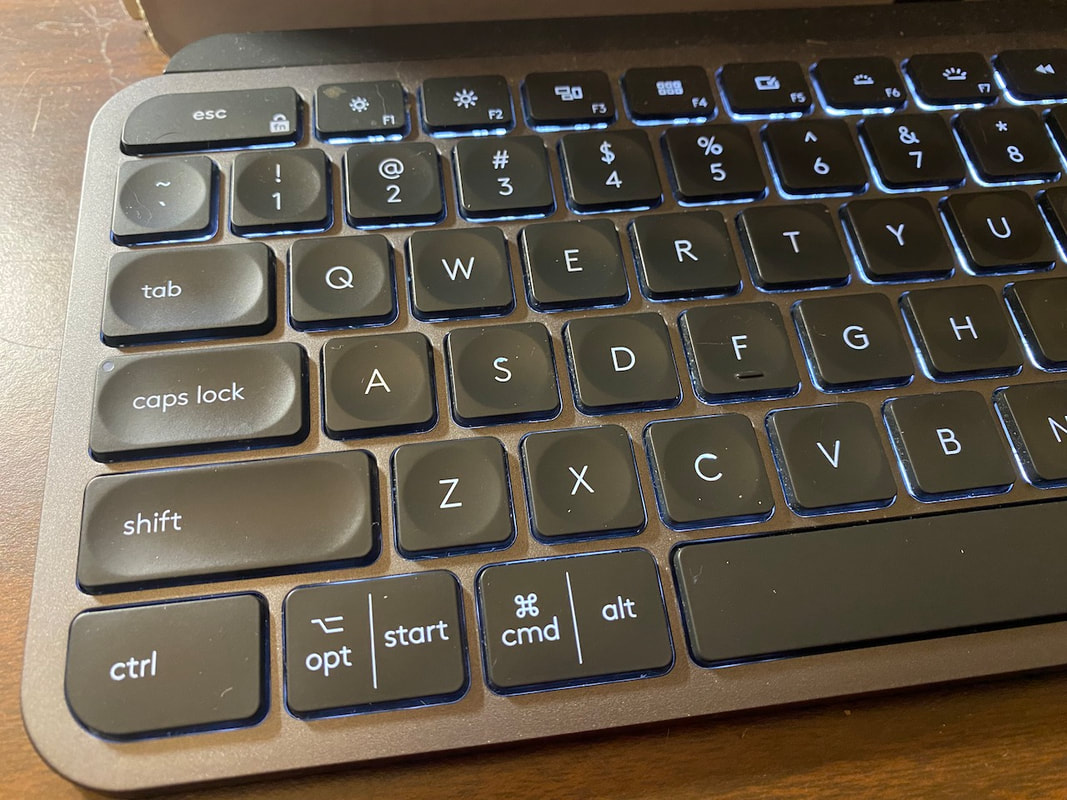
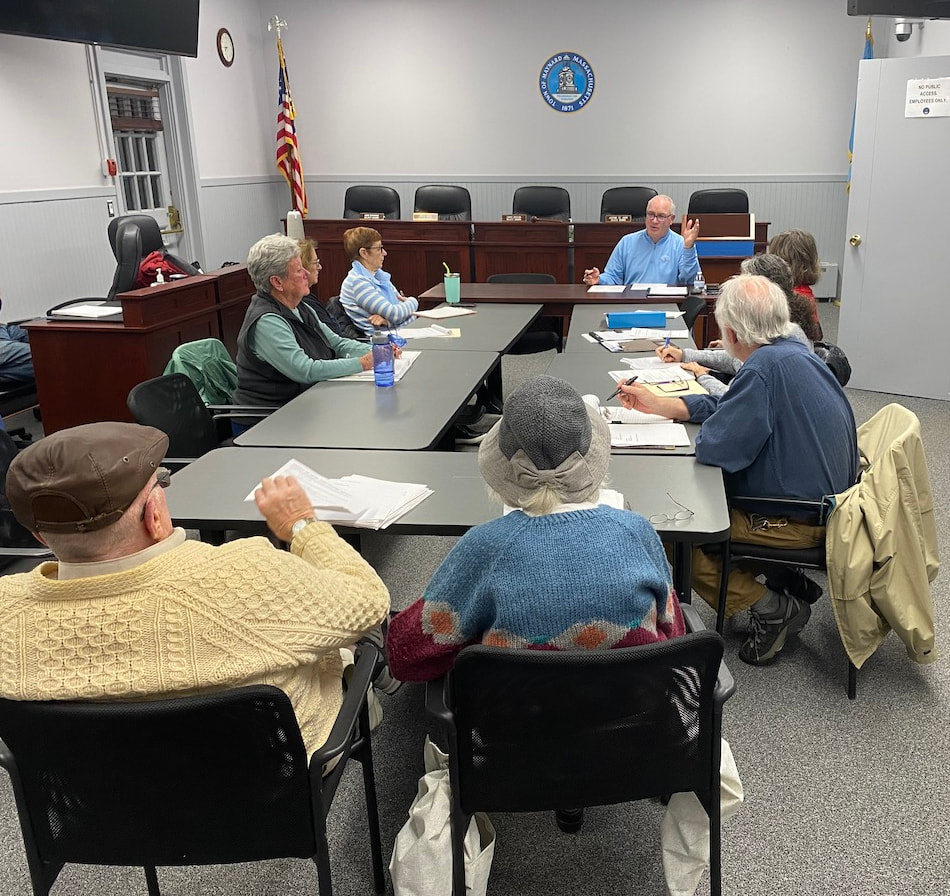
 RSS Feed
RSS Feed